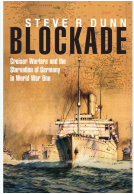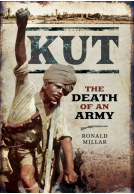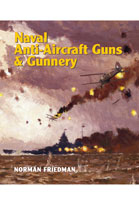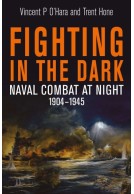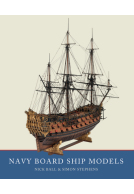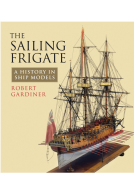Securing the Narrow Sea (ePub)
The Dover Patrol 1914 - 1918

File Size: 13.0 MB (.epub)
Pages: 288
Illustrations: 30
ISBN: 9781848322516
Published: 25th January 2017
Publicity
- Check out Steve Dunn's podcast via The New Books Network
- 2017 Mountbatten Maritime Media Award for Best Literary Contriubtion nominee
- As featured by; Bromsgrove Standard, Dudley News, Halesowen News, The Shuttle, Worcester News, Cotswold Journal and Tamworth Informed
| Other formats available | Price |
|---|---|
| Securing the Narrow Sea Hardback Add to Basket | £25.00 |
The Dover Patrol, which brought together an assortment of vessels ranging from the modern to the antique and included cruisers, monitors, destroyers, trawlers, drifters, yachts and airships, was commanded by a series of radical and polarising personalities and increasingly manned by citizen volunteers. Between 1914 and 1918 the men of the Patrol sought to shut down German access to the Atlantic via the narrows of the English Channel, with the goal of preventing German bound trade going in and U-boats, commerce raiders and warships going out. Their story has rarely been told, but it was the longest, and probably the most arduous, continuous naval campaign of the war, demanding much sacrifice of ships and men.
Using first-hand accounts of the participants, the book examines the wide-ranging exploits of the Dover Patrol – from shore bombardment, barrage building and maintenance, anti-submarine work and escort duties to the protection of troops and supplies to the Western Front and ship-to-ship engagements with German forces. It also charts the in-fighting at the Admiralty which led to two changes of command and examines the personalities of the men involved.
The author paints a vivid picture of a vital and little known part of the war at sea, bringing its exploits and challenges to life and culminating with the infamous Zeebrugge and Ostend raids. An important new book.
This book can hardly be recommended too highly. It is clear, comprehensive, and many-sided, impeccably researched and documented yet eminently readable. It is absolutely fascinating and required reading for anyone interested in anti-submarine warfare, inshore warfare, and naval engineering. It tells the story of an area of sea warfare in WWI which was hard fought, vital, and once famous, but which has now fallen into obscurity. The careers of Hood, Bacon, and Keyes also reward study, as gifted naval commanders able to understand land warfare and exploit novel technology – both essential to secure the narrow seas.
Naval Historical Foundation
Read the full review here
As featured by
Warship annual, 2018
This book provides a valuable insight into the little-known story of the Royal Navy's Dover Patrol.
Marine News
A human dimension has been provided by the incorporation of the personal accounts of many of the participants into this fast moving historical narrative.
A welcome addition to the bookshelf.
Dunn’s book, Securing the Narrow Sea: The Dover Patrol 1914-1918, is not only an excellent read, it is also a timely reminder of the unseen work that the Royal Navy undertakes to maintain our nation’s security.
Steve Garnett Maritime History (statepapers71.com)
Read the complete review here.
As featured in
The Staffie
As featured in
Tamworth Informed
As featured i
Cotswold Journal
As featured in
Dudley News
‘pacy narrative’ - ‘well researched account’
Warships IFR, November 2017
The book is eminently readable and goes into many byways of a personal nature.
Mariner’s Mirror, August 2017
‘Securing the Narrow Sea’ is highly recommended as a corrective to the land-centric Western Front versions of the First World War. It is an important addition to the bookshelf of anyone interested in the 1914-1918 war.
Australian Naval Institute, Dr Gregory P. Gilbert
Read the complete review here.
As featured in
The Marine Quarterly Summer 2017
I had thought I had read just about everything about the Dover Patrol in WW1. Over the years I had even searched out obscure publications in public library vaults. So I was a little 'Ho Hum' when I received a copy of SECURING THE NARROW SEA (The Dover Patrol) by Steve R. Dunn. Imagine my surprise therefore to find that Dunn can write history in the way that has you feeling you don't want to put it down, and you read on into the wee hours of the night. The Author has taken an entirely new approach to the Dover Patrol and I really enjoyed the book. I think I learnt more in that one book that I have through a dozen others.
Mal Wright, Author
Dunn is a talented writer that can keep the reader interested as he rolls through the story, yet darts off to tell small stories from the people involved, or relates fascinating information about the individuals prewar or post war....but does not cause the reader to lose track! This book is a treasure and for those who like to break away from the big ships swinging at their anchors, and go to sea in all weather in some totally unlikely and often leaky vessels of dubious capabilities, this book is the one for you.
He divides the story into distinct segments. Three deal with the three different Admirals who, in turn, commanded at Dover. He relates their good points and their bad. Their personalities in dealing with the job, and their ability to relate to those under their command, who were as motley a bunch as the vessels they manned. Other segments deal with the role and situation, the last with the men who manned the Dover Patrol. Hell....even his notes were great reading. The author has done a great job of turning history into 'a great read' and I am full of admiration for what he has achieved.
I highly recommend this book. I give it ***** five stars for research, ***** five stars for readability and if we were giving more than five starts I would give it an extra in each category!
As featured in
Marine Quarterly, Summer 2017
There is quite a story about efforts in World War One to control that narrow strip of sea which separates Britain from the continent. If not the whole story this book gives a very good impression of covering most of it. From the lowest ranks with 'ordinary men doing extraordinary things' to the damaging petty jealousies and rivalries at the top of the Admiralty. It covers the failures in understanding that sea warfare was changing, failure in ships not really designed to fulfill the tasks asked of them. It illuminates the superhuman efforts and devotion to duty shown by the middle and lower ranks when they were asked to compensate for strategic inadequacies. The ships ranged from drifters taken in from the fishing fleet to monitors fitted with 15 inch guns. The tasks ranged from patrolling the anti-submarine boom, to bombarding enemy troops in Flanders, to the attacks on Zeebrugge and Ostend. Personal stories abound as in the sinking of H M S Sanda taking with it the oldest serving officer at sixty-seven and a signal boy of fifteen. In another incident on the death of a sailor he was found to have two wives, a problem for the pay-office! The book is well written, thoroughly researched, well illustrated. While reading this book I occasional put it down because I was enjoying it so much I didn't want it end. It really is that good.
Clash of Steel
'Securing the Narrow Sea is interesting and different. It tells of a largely forgotten, yet vital, naval campaign of World War I.'
Galveston County Daily News
Men in the traditional Historical style, this is a book covering the history, men and vessels of the Dover Patrol in the Great War...
Ship Modeller
The book moves along at a great clip and we are treated to a very well written and thorough analysis of the patrol, it's context, it's enemies (Under the German British Flags) and the men that both lead it and crewed it.
Recommended!
I learned quite a bit from this book and have no hesitation recommending it.
Scuttlebutt Edition 54
5/5 anchors for an outstanding piece of history that brings the Dover Patrol to life and paints a vivid picture of the flotilla of destroyers, submarines and other vessels that were called to the colours , as well as some of the fantastic characters that joined or rejoined to fight in them.
Navy Net
Read the full review here.
Royal Naval First World War history often throws up reference to the Dover Patrol, and it has become part of the background scenery to stories such as the attacks on Zeebrugge and Ostend in 1918. There is a sense that it was a well-established and going concern throughout the war from the commencement of hostilities, but this was not the case. Dunn’s work shows how much of the Patrol, like so many wartime endeavours, was a fairly hasty improvisation brought on by urgent wartime necessity. Regulars, reservists and civilians both volunteer and pressed man were brought together in a seaport lacking in most of the infrastructure enjoyed by the Royal Dockyards. Dover itself was - -and still is – a decidedly sticky wicket as ports go, its breakwaters providing little shelter from heavy weather and seas made far worse by its location at the narrowest point of the Channel.
Amazon review
Dover’s weakness in a geographic sense was more than outweighed by its virtue in a strategic; effectively providing one of the key means by which the RN had early warning of any German High Seas Fleet activity, and, most importantly by enforcing the blockade on Germany and to force re-routing of its forces up the North Sea past the massed forces on the British east coast.
The Patrol suffered from the RN’s desire to train and equip for the next Trafalgar, which left it light in the realms of Mine Warfare, Naval Gunfire Support, submarine and Anti-Submarine Warfare. Thus the Patrol would suffer steady losses to these weapons of war while hastily attempting to protect others from them. Fortunately, its first CO, Horace ‘the ‘onorable ‘orace’ Hood, had the intellect, drive and diplomacy to weld together a cohesive fighting force from the disparate elements at his disposal. In forging order from chaos, Hood was compelled to challenge the Admiralty on a range of matters, such as its insistence on fobbing off obsolete warships on to his command to provide naval gunfire. Hood challenged this as a waste of fighting sailors. Hood eventually fell foul of Churchill, joining the small but select band of officers who fell foul of Churchill owing to their tendency to speak truth to power.
Hood was relieved by Reginald Bacon, a far more autocratic leader who found it hard initially to establish the rapport Hood had enjoyed with the Dover Patrol. Or perhaps Bacon didn’t feel that he needed this, as he was a supremely self-confident individual. His technical abilities were tested sorely by the attempt to string anti- U-boat nets across the Channel to deny the Kreigsmarine freedom of manouver west. In hindsight, this was never going to work, but Bacon’s engineering skills and undoubted drive would get every last ounce out of existing technology. Unfortunately, this program was to be used against him by rivals within the Admiralty, including his nemesis and ultimate replacement, Roger Keyes.
The Patrol soon came to realise what they had lost with Bacon’s departure. Keyes, with a well-earned reputation for personal courage earned during the Boxer Rebellion, was driven by fierce personal ambition and a burning desire for fame, and as such had become one of Churchill’s favourites. He seized on pre-existing plans to raid both Zeebrugge and Ostend, as the daily grind of patrol and deterrence of enemy activity did not appeal to his personality. Dunn shows how these raids achieved little in a military sense, but were seized upon by a Navy desperate for a definitive battle after the bloody but inconclusive affair at Jutland. Little was gained but incredible displays of gallantry. This may have been a resounding success by Keyes’ logic.
The daily life of the patrol was mostly the antithesis of a Trafalgar fleet action. Mine clearance by trawlers (whose crews exchanged one wildly hazardous occupation at sea for another), Naval Control of Shipping, emergent anti-submarine warfare and the maintenance of a slowly-tightening blockade that ultimately reduced Germany to near-starvation all were the daily Patrol routines. In this sense, all the groundwork for similar activities in WW2 had been laid, but the ravages of the inter-war years and in particular the ‘Geddes Axe’ saw most of them forgotten, only to be re-learned at a painful cost from 1939 onwards.
5 stars. Excellent.
With WWI centenaries coming thick and fast, there has been a deluge of books published to time with the events. Inevitably the terrible battles on the Western Front have dominated but here is a most welcome book on the Dover Patrol, a much under-covered part of WWI. The author has produced a very creditable review of this vital service, a must-read book that deserves to be highly commended.
Firetrench
Read the full review here.
The book is a fitting tribute to the bravery of those who would not have seen their actions as heroic but merely ‘’doing their duty’’.
The Village magazine, Worcestershire
As featured in
Hereford Times
As featured in
Halesowen News
As featured in
Kidderminster Shuttle
As featured in
Broomsgrove Advertiser
As featured in
Broomsgrove Arts Alive
As featured in
The Village Online
As featured in
Visit Kent Online
As featured in
Worcester News
As featured in
Redditch & Alcester Advertiser
As featured in
White Cliffs County
As featured in
Kent Online
As featured in
Droitwich Standard
As featured in
East Kent Mercury
As featured in
Broomsgrove Standard
About Steve R. Dunn
STEVE R DUNN is an author with a special interest in the Royal Navy of the late nineteenth century and the First World War. He has written biographies and narrative histories including Blockade, Securing the Narrow Sea, Bayly's War, Southern Thunder, The Battle of the Baltic, The Power and the Glory, British Naval Trawlers and Drifters in Two World Wars, The Harwich Striking Force, The Petrol Navy and most recently Steam Yachts at War, all published by Seaforth. Steve lives in Worcestershire.












